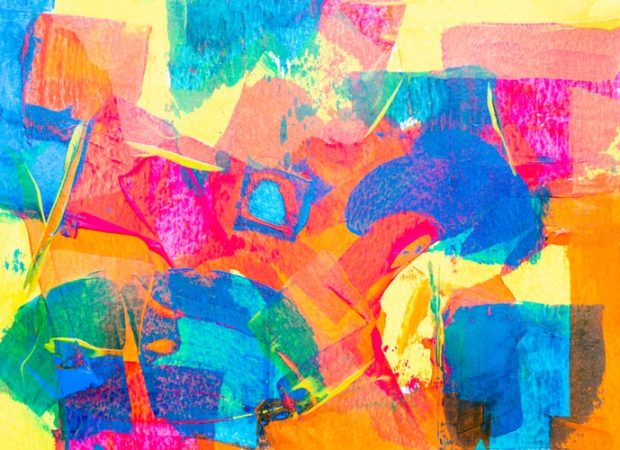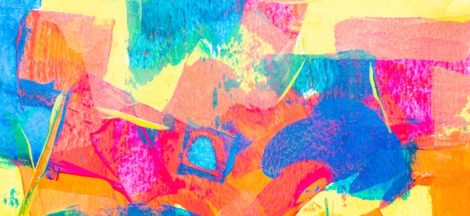- Jan: Day 1 (17/1/18)| Day 2 (18/01/18) | Day 3 (23/01/18) | Day 4 (24/1/18) | Day 5 (30/1/18)
- Feb: Day 6 (1/2/18) | Day 7 (6/2/18) | Day 8 (7/2/18) | Day 9 (8/2/18) | Day 10 (13/2/18) | Day 11 (20/2/18) | Day 12 (21/2/18) | Day 13 (22/2/18)
- Mar: Day 14 (6/3/18) | Day 15 (7/3/18) | Day 16 (13/3/18) | Day 17 (14/3/18) | Day 18 (15/3/18) | Day 19 (20/3/18) | Day 20 (21/3/18) | Day 21 (22/3/18) | Day 22 (27/3/18)
- Apr: Day 23 (3/4/18) | Day 24 (4/4/18) | Day 25 (5/4/18) | Day 26 (10/4/18) | Day 27 (11/4/18) | Day 28 (12/4/18) | Day 29 (14/4/18) | Day 30 (18/4/18)
This post is essentially a compilation of tweets from Gautam Bhatia, Prasanna and SFLC to understand how the Aadhaar hearing happened in the Supreme court.
Day 31: 19 April ’18
Senior Advocate Rakesh Dwivedi the last counsel for the State/UIDAI arguing.
- Hearing continues.
- Rakesh Dwivedi, Sr. Adv continues his submissions on the behalf of UIDAI and the State of Gujarat. He is reading from his written submissions…Page 56
- “Development requires the removal of major sources of un-freedom, poverty as well as tyranny”- Senior Advocate Rakesh Dwivedi quotes Amartya Sen.
- Chief Justice of India: Liberating people from un-freedom (poverty) is at one end of the spectrum and right to privacy is on the other.
- Justice Chandrachud: Aadhaar is a means for identification according to you. The only caveat to that is that there should be no exclusion.
- Discussion on Section 7.
- Rakesh Dwivedi reiterates that the point of Aadhaar is to bring the provider of benefit face to face with the beneficiary.
- Justice Chandrachud: I’m not sure if that’s the best model. The individual should not be a supplicant. The State should go to him and give him benefits.
- Rakesh Dwivedi is reading the statement of objects and reasons of the Protection of Human Rights Act 1993. Says India has been a signatory to several international covenants.
- Various judgements of the Supreme Court on economic and social welfare culminated into the Parliament framing the Aadhaar act.
- Justice DY Chandrachud says that the parliament in its wisdom has decided there is leakage and that to implement Part IV rights, we will need to defer to that.
- Rakesh Dwivedi agrees and repeats.. …the point of for the first time people having to come to face to face.
- Justice DY Chandrachud does not agree to that proposition…says State has the duty to ensure Part IV rights irrespective.
- More discussion between Chief Justice of India and Rakesh Dwivedi on how many villages have fair price shops.
- Rakesh Dwivedi reading now from Page 53 how certain countries have economic social rights and right to welfare in their respective Bills of Rights.
- Now reading the Statement of Objects of the Protection of Human Rights Act, 1993.
- He is now reading from Subramanian Swamy judgment of Justice Dipak Misra on balancing of fundamental rights wherein A.19(1)(a) was balanced against right to reputation.
- Page 318 as reported in SCC. In dealing with balancing of rights. In Swamy’s case which challenged criminal defamation provision, it was right of freedom of speech v right to reputation.
- Still discussing balancing of fundamental rights. In this regard, he quotes X v. Hospital Z, G. Sundarrajan v. UoI, Ashan Ranjan v. State of Bihar, Noise pollution in re v. Union of India (2017 4 SCC 397. Paras 57 through 62)
- “Larger public interest” and “interest of the collective” is the guiding factor when there is a conflict of fundamental rights…especially when it is within the same article right…example 21 v 21.
- Justice DY Chandrachud adds in saying the conflict can arise not between two individuals…but even for the same individual, conflict between two rights.
- Says how this Court had never accepted the suppression of civil liberties at that ground.
- Rakesh Dwivedi says Aadhaar is not suppression of civil liberties.
- Chief Justice of India advices Rakesh Dwivedi to structure his submissions to articulate it as a Article 21 and minimal intrusion.
- Minimality of intrusion will take care of balancing and Article 21 for many will be the legitimate state interest.
- Rakesh Dwivedi: He is on balancing. How balance is the symbol for justice. No two extremes. Nothing should cease to exist. Both should coexist. “Balancing wheel” emanates from the Buddha, he says.
- Cites how Govt can go ahead and ban prostitution or manual scavenging even if people who are engaged in such work are doing it by choice for his argument on balancing. Choice v his/her dignity.
- Justice DY Chandrachud cites @gidla_sujatha in ‘Ant among the elephants’ as a telling commentary on the reality of manual scavenging.
- Justice Sikri asks if Rakesh Dwivedi’s section 7 arguments are over.
- Rakesh Dwivedi says yes and moves to his next argument on “Reasonable Expectation of Privacy”
- All data collected by Aadhaar is basic data. Collected almost everywhere. Bank, bar council, university etc etc.
- No reasonable expectation of privacy against collection of demographic data.
- Justice DY Chandrachud asks if his argument that there is no reasonable expecation of privacy in demographic data because it is already in public realm.
- Rakesh Dwivedi says yes.
- Justice DY Chandrachud points out how race caste religion etc are excluded in the Act.
- Rakesh Dwivedi agrees in glee.
- Justice Sikri says it is a question of apprehension of using the data in a manner and for purposes unauthorised and against the individual.
- Rakesh Dwivedi says fear has to be real not fantastic.
- Chief Justice of Indian says Rakesh Dwivedi cannot make those subjective judgment on that.
- Rakesh Dwivedi says he will respond from Koodankulam judgment.
- Gopal Sankaranarayanan, counsel for @ccsindia informs the Court that has been hacked and that is the level of encryption with GoI (sci.gov.in)
- Laughter allround.
- Attorney General says SCI should learn from UIDAI.
- CEO nods in agreement.
- No hearing in the second half today.
- Rakesh Dwivedi to finish by Wednesday Lunch. All respondents to finish by next week.
- Petitioners to get 1.5 days for rejoinder.

